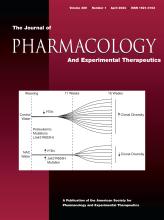Travis Thompson.
Dr. Travis Thompson, a pioneer in behavioral pharmacology and a leading innovator in behavioral medicine and developmental disabilities, died on August 2, 2023, at the age of 86. Professor Thompson received his PhD in experimental psychology in 1961 from the University of Minnesota under the mentorship of Gordon Heistad. His graduate work focused on the effects of drugs (mainly antipsychotics) on various behaviors (e.g., aggression, food-maintained responding, and extinguished responding). During this time, he developed an interest in using the experimental analysis of behavior (EAB) to study the brain—an interest that remained as he moved toward the study of autism and intellectual disabilities. From 1961 to 1963, Thompson conducted postdoctoral research at the University of Maryland under the mentorship of Joseph V. Brady. It was there that he, along with Brady’s graduate student Robert Schuster, conducted the first studies on morphine self-administration in rhesus monkeys. This research led to one of the most important research papers in the field of behavioral pharmacology (Thompson and Schuster, 1964) and helped establish intravenous drug self-administration as the “gold standard” preclinical model relied on, to this day, by the Food and Drug Administration and World Health Organization to guide controlled substance scheduling. Thompson and Schuster (1968) also wrote the first textbook in our field (Behavioral Pharmacology). He coedited a seven-volume series titled Advances in Behavioral Pharmacology as well as Readings in Behavioral Pharmacology and Stimulus Properties of Drugs, to name a few. In his career, Thompson published over 225 research papers and chapters as well as 32 books.
Of these publications, those published in The Journal of Pharmacology and Experimental Therapeutics were quite impactful. Two examples: In 1968, Roy Pickens and Travis published a paper investigating the impact of changes in reinforcement magnitude and fixed-ratio size on behavior—these findings impacted future research utilizing measures of reinforcing strength (Pickens and Thompson, 1968). In 1977, his laboratory published a paper on ketamine self-administration in rhesus monkeys; these findings are still of high relevance today (Moreton et al., 1977).
In 1963, Thompson returned to the University of Minnesota as an assistant professor with appointments in the Departments of Psychiatry, Psychology, Pharmacology, and Neurology. In 1966, he was promoted to associate professor and then, in 1969, to full professor with tenure. Over the next two decades, Thompson maintained an animal laboratory that conducted classic behavioral pharmacology research in the Department of Psychology. Thompson’s work showed how some drugs could profoundly change behavior by acting as discriminative or reinforcing stimuli or by changing the parameters of controlling variables in the environment, an important principle called “behavioral mechanisms of drug action.” He also expanded his interests to include autism and intellectual disabilities and incorporated EAB methodologies to improve his clients’ quality of life. In 1991, Thompson left the University of Minnesota to direct the Vanderbilt University Kennedy Center for Research on Human Development, where he conducted research on Prader-Willi Syndrome, self-injurious behavior, and residential architecture for people with intellectual disabilities. In 2000, he became the Director of the Institute of Child Development and Smith Professor of Psychiatry and Courtesy Professor of Human Development and Family Life at the University of Kansas Medical Center. In 2004, Thompson returned to the University of Minnesota, where he remained for the rest of his career.
Thompson was president of the Behavioral Pharmacology Society (1972 to 1973) and president of Division 28 (Psychopharmacology; 1974 to 1975) and Division 33 (Mental Retardation and Developmental Disabilities; 1990 to 1991) of the American Psychologic Association (APA). His awards are numerous and include the National Institute on Drug Abuse (NIDA) Award for Outstanding Contribution to the National Drug Abuse Program for Training in Behavioral Pharmacology in 1987, the Don Hake Award from the APA Division 25 for outstanding contributions in bridging basic and applied research in the field of behavior analysis in 1990, and the P.B. Dews Award from the American Society of Pharmacology and Experimental Therapeutics in 2016.
While at the University of Minnesota, Thompson was the Director of the Neuro-Behavioral Pharmacology Training Program (The National Institute of Mental Health and NIDA) from 1966 to 1990. Over those 25 years, he mentored 47 PhD students, many of whom have made significant contributions to the field of behavioral pharmacology after leaving Minnesota. While at Vanderbilt University and University of Kansas, he mentored six PhD students in research involving clinical populations. Thompson’s mentoring style reflected principles of operant conditioning—his door (a discriminative stimulus; SD) was always open, and reinforcement (his advice) was contingent on you entering. His guidance was highly personalized as he had a remarkable ability to see the special potential in each of his students and recommend professional pathways and positions that he felt they could excel in. His efforts were often behind the scenes, bringing them to the attention of leaders at other institutions and supporting their transitions to new positions.
Thompson loved music, jazz in particular, which was a mainstay accompaniment to his in-home evening seminars for many years and he was an acclaimed visual artist, especially in stained glass and watercolor painting. While he was director of the Vanderbilt Kennedy Center, Thompson established the Vanderbilt Kennedy Center’s Arts and Disabilities Program. Over the years, this program has sponsored exhibits of art by people with disabilities.
Professor Thompson is survived by his wife, Anneke; children Rebecca, Jennifer, Andrea, and Peter; and grandchildren Christopher, James, Alex, Emma, Michael, T.J., and Lily.
Footnotes
- Received January 10, 2024.
- Accepted January 11, 2024.
A version of this obituary was published in the American Psychological Association, Division 28 Newsletter.
- U.S. Government work not protected by U.S. copyright







